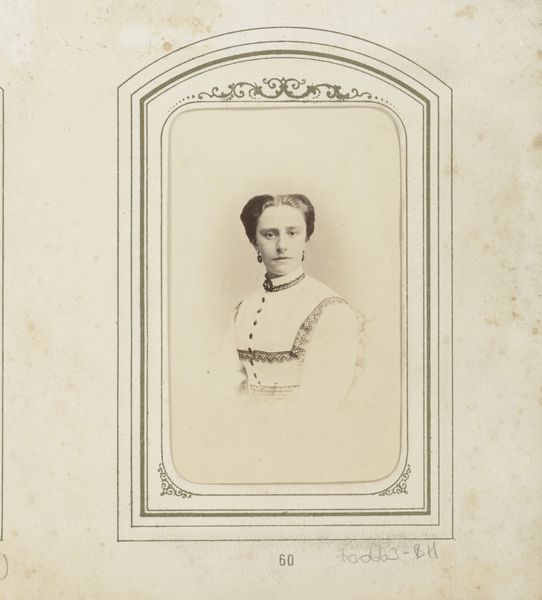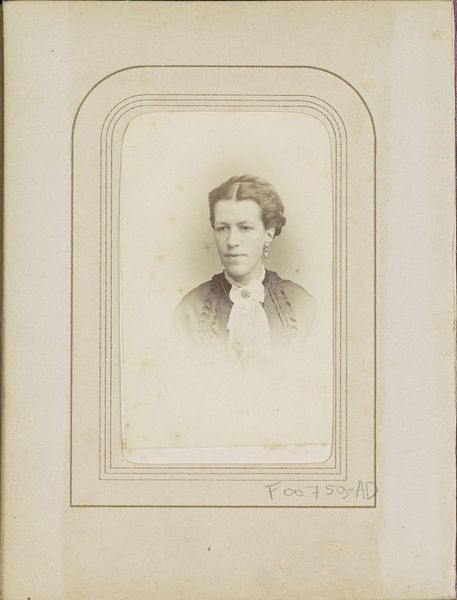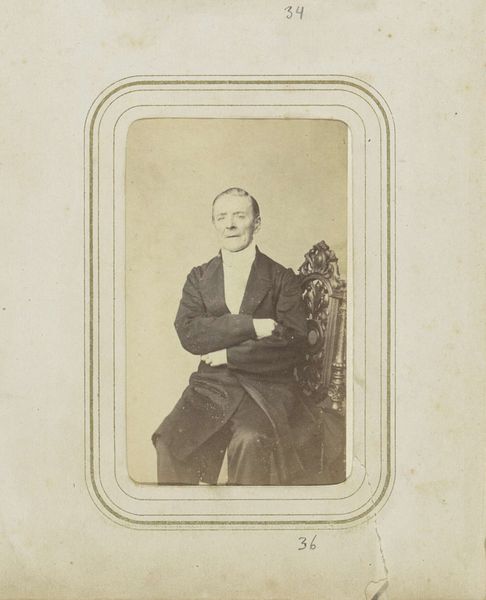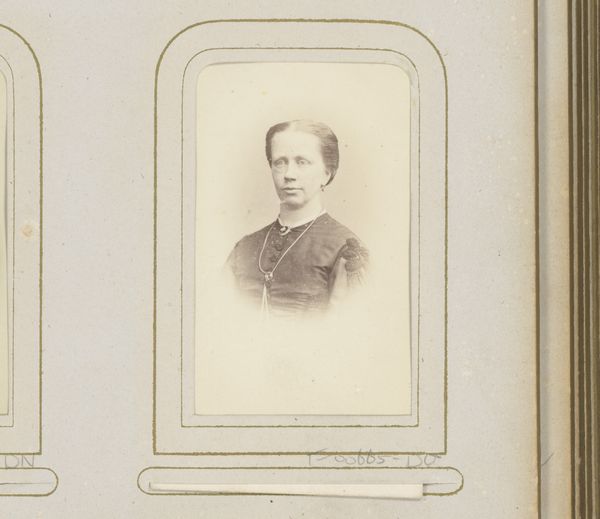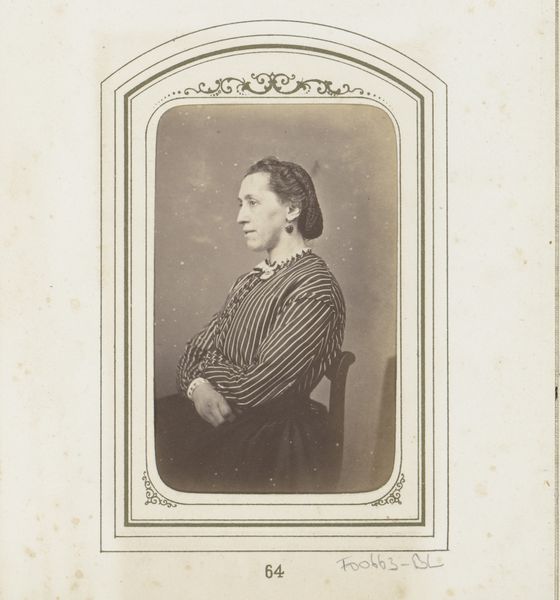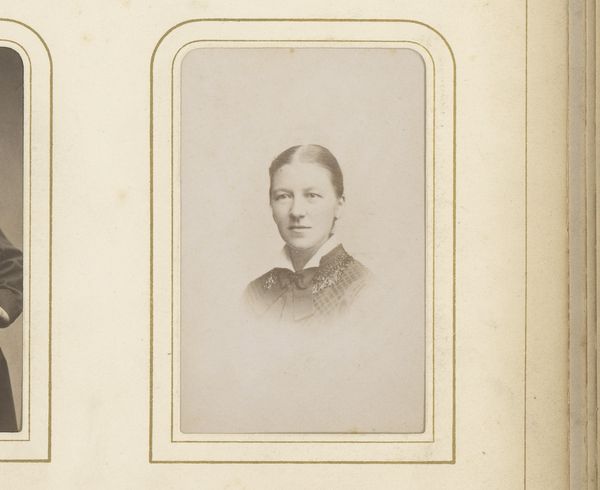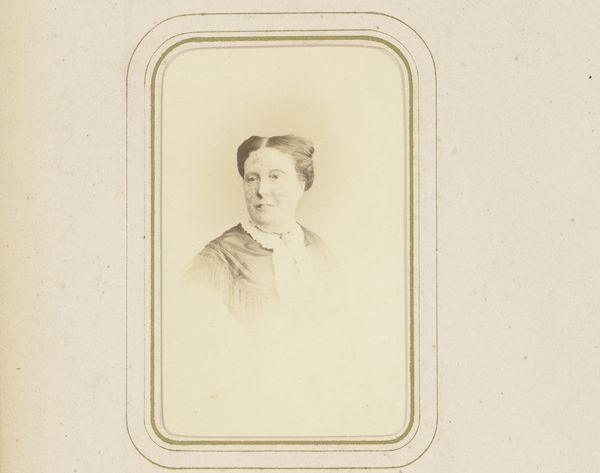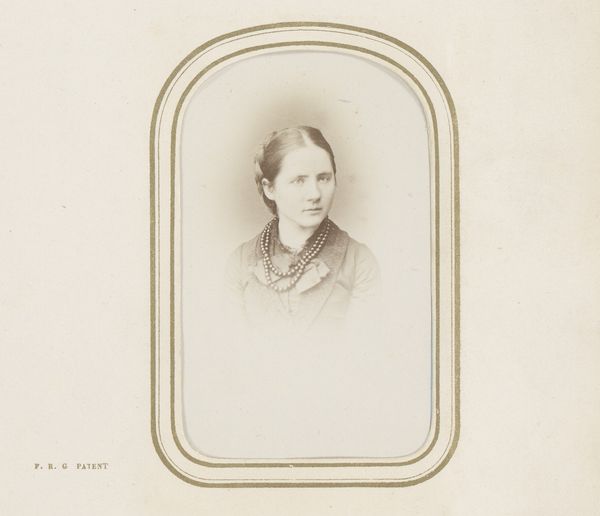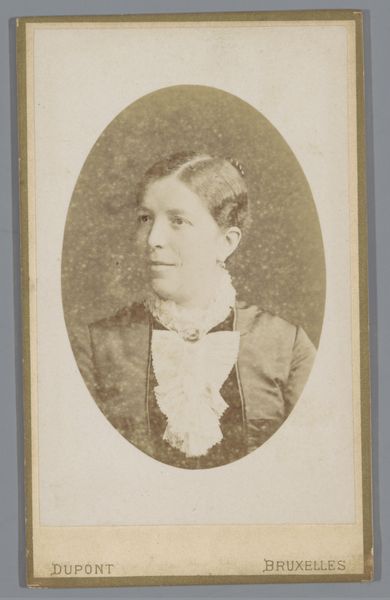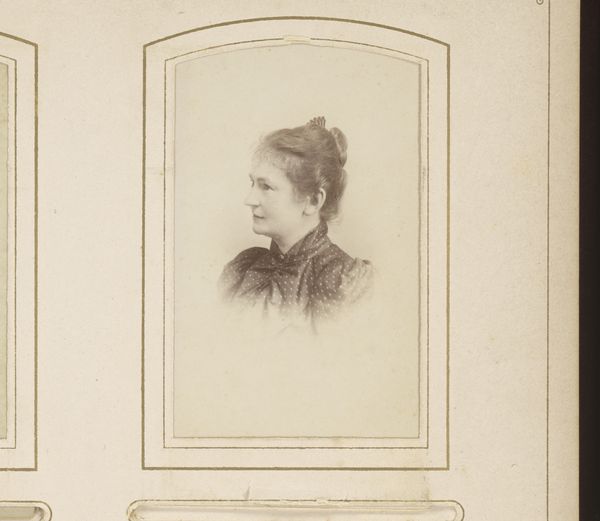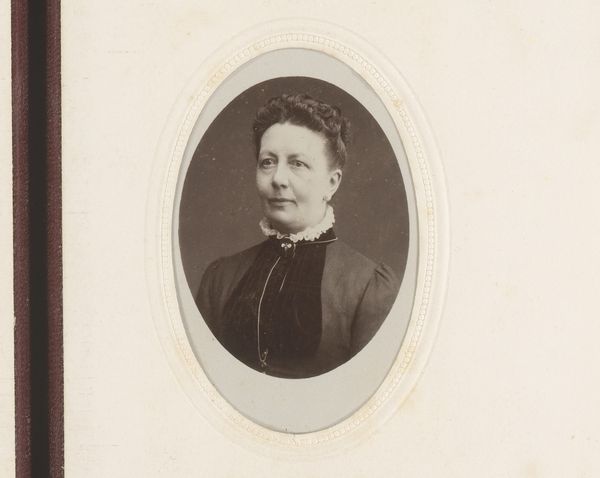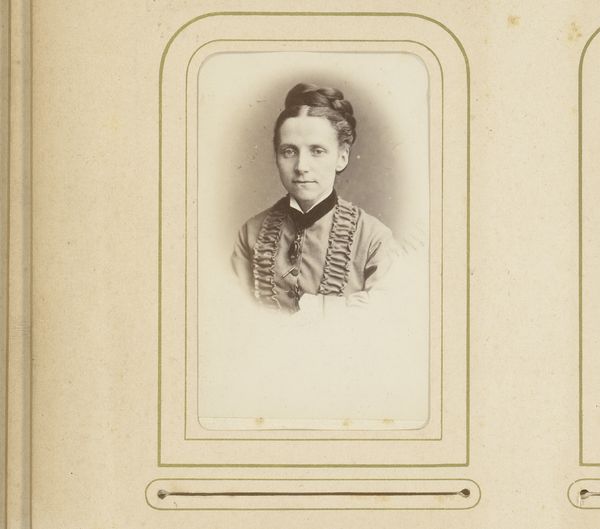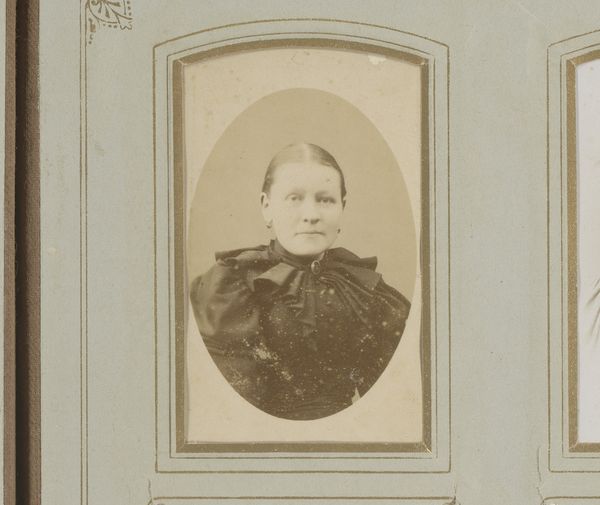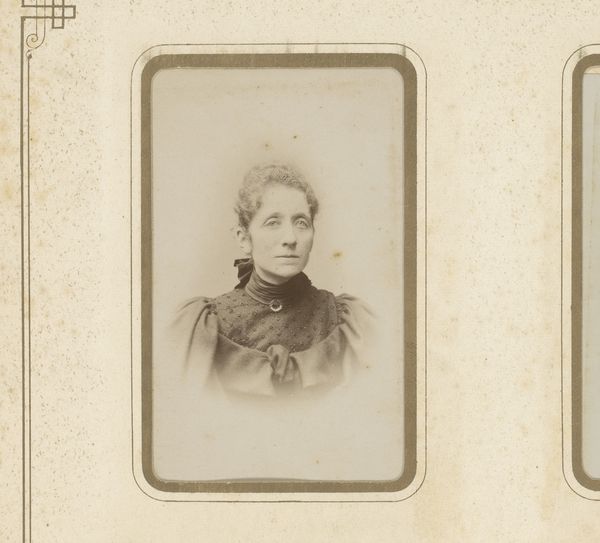
photography
#
portrait
#
aged paper
#
toned paper
#
photography
#
portrait reference
#
19th century
#
portrait drawing
#
realism
Dimensions: height 82 mm, width 52 mm
Copyright: Rijks Museum: Open Domain
Curator: A rather solemn face stares back at us from this photograph entitled, "Portret van een vrouw met oorbellen," or "Portrait of a Woman with Earrings" by A. Dupont, dating back to around 1878. What are your first impressions? Editor: Austere and undeniably aged—you can almost smell the chemicals and feel the weight of the past embedded in this photographic print. The tones and framing definitely evoke a bygone era. Curator: Indeed. The composition directs our gaze squarely at the woman’s face, drawing attention to her expression. The almost symmetrical balance adds to the gravity of the piece. Editor: I am intrigued by how Dupont captured light, or rather the lack thereof, reflecting on the material possibilities of photographic art back then. This portrait offers insight into 19th-century photographic practices—the limitations and how those limitations informed artistic choices. The choice of toned paper also reflects material considerations and the period's aesthetic preferences, and maybe the availability of materials. Curator: From a formal perspective, the choice of light is deliberate, directing our eyes not only to her facial expression, but also to her social position, visible in the sartorial elements. This portrait isn't merely an attempt to capture likeness but also to create a composed statement. The delicate oorbellen and the formal attire work in tandem. Editor: Exactly. Considering the broader implications of portraiture during this period also is of consequence. Think about how this technology made representation accessible to a broader section of the population; who commissioned portraits versus who became a working photographer? And the very labor involved... Curator: Thank you. It makes us appreciate this artifact on display for us today and see it in a much richer way. Editor: Absolutely. By looking closely at these prints, we come to better understand the story about photography in the late 1800s and beyond.
Comments
No comments
Be the first to comment and join the conversation on the ultimate creative platform.
